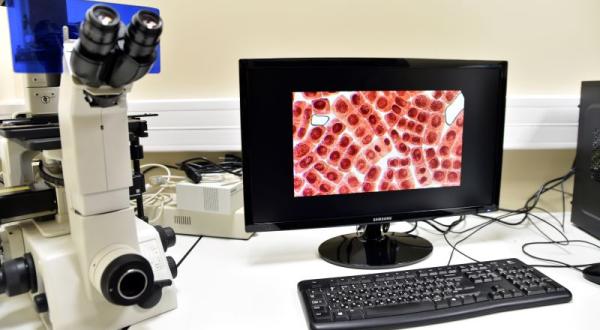Research on differences in microbial translocation markers and faecal microbiota in HIV and HCV patients
Infections caused by human immunodeficiency virus (HIV) and hepatitis C virus (HCV), remain a global problem. 1.5 million new HIV and HCV cases are diagnosed each year despite the fact that modes of transmission are well known, diagnostics have improved, and the availability of effective drugs for their treatment.
Chronic immune activation is a hallmark of progressive HIV infection. It is associated with the release of bacterial metabolic intermediates from the gut into the general blood circulation, or microbial translocation. Potential causal links between the composition of the gut microbiota and changes in it are being investigated in the context of many diseases. HIV-infected patients have a lower total amount of bacterial genes in the intestinal tract compared to healthy individuals, as well as lower bacterial diversity. Changes in the composition of individual bacterial species have been observed that may potentially influence both disease progression and treatment outcome.
The aim of this study was to identify and analyse differences in microbial translocation markers and faecal microbiota in patients infected with HIV and/or HCV. The author has put forward a hypothesis that
patients infected with both viral infections have more significant differences in gut microbiota, and that microbial translocation from the gut to the peripheral circulation is more marked in these patients compared to HIV and HCV-monoinfected patients.
The results of this study partially support this hypothesis and indicate that HIV infection has a more significant effect on gut microbiota and microbial translocation, whereas HCV infection did not have an additional significant effect on these processes.
Monta Madelāne will defend her doctoral thesis “Differences of Biochemical Endotoxin-Related Markers and Faecal Microbiota in Patients with HIV and HCV Infections” on 27 June 2023.
Read more




